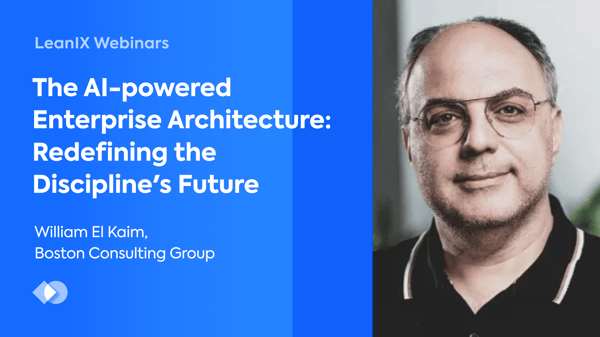[CONTINUED]
Impact of AI on IT jobs
Artificial Intelligence (AI) is not only transforming the way businesses operate but also the job market and the kind of skills that are in demand.
On one hand, it is automating routine tasks, which could lead to job displacement in certain areas. On the other hand, it is creating new jobs that didn't exist before, such as AI ethics officers, data scientists, and machine learning engineers.
AI is also changing the nature of existing jobs. For instance, software developers now need to understand how to work with AI algorithms. IT support staff need to know how to manage AI-powered systems. And IT managers need to understand how to use AI to enhance business operations.
The impact of AI on the job market is not just about job loss or gain. It's also about job transformation. As AI continues to evolve, the job market will need to adapt to these changes.
The role of AI in IT job roles and skills
AI is influencing the skills that are in demand in the IT industry. Skills related to AI, such as machine learning, deep learning, and natural language processing, are highly sought after. There's also a growing demand for skills related to AI ethics, given the increasing importance of using AI responsibly.
Moreover, AI is not just about technical skills. As AI systems become more prevalent, there's a growing need for professionals who can understand and navigate the intersection of AI and business strategy. These professionals need to understand how to use AI to solve business problems, drive innovation, and create new business opportunities.
In addition, as AI systems become more sophisticated, there's a growing need for professionals who can understand and navigate the intersection of AI and human behavior. These professionals need to understand how to design AI systems that are user-friendly, ethical, and socially responsible.
IT job impact index
The Job Impact Index from thereisanaiforthat.com is a measure of how much AI could automate a specific job role. The index ranges from 0-100%, with 100% representing a fully automated job.
The Impact score is calculated based on the tasks that can be performed with AI, the relevancy of those tasks for a specific job, the AI impact score of each task, the number of AIs available for each task, and the capabilities of each individual AI within each task. Keep the score with a grain of salt, since the final score is calculated with the help of AI.
Let's see what the AI shows for the major IT architect roles:
- Enterprise Architect (25%): Enterprise Architects, who design and analyze an organization's IT structure, have a 25% AI impact score. This suggests that AI could automate a quarter of the tasks typically performed by an Enterprise Architect. AI can help in analyzing complex data, identifying obsolete services, and suggesting optimization opportunities in processes. However, the strategic decision-making and leadership aspects of this role are less susceptible to automation.
- Solution Architect (50%): Solution Architects, who design and manage solutions to specific business or technical problems within an organization, have a 50% AI impact score. This suggests that AI could potentially automate half of the tasks typically performed by a Solution Architect. AI can assist in areas like system design, integration, and optimization. However, tasks that require a deep understanding of the business context and strategic decision-making are less likely to be automated.
- Cloud Architect (55%): Cloud Architects, who oversee an organization's cloud computing strategy, have a 55% AI impact score. This suggests that AI could potentially automate more than half of the tasks typically performed by a Cloud Architect. AI can assist in areas like cloud resource management, performance monitoring, and security compliance. However, the strategic aspects of cloud strategy and governance are less likely to be automated.
- Software Architect (20%): Software Architects, who create high-level design choices and dictate technical standards, have a 20% AI impact score. This suggests that AI could potentially automate a fifth of the tasks typically performed by a Software Architect. AI can assist in areas like code generation, system design, and performance optimization. However, tasks that require a deep understanding of the business requirements and strategic decision-making are less likely to be automated.
These scores indicate that while AI can automate certain tasks within these roles, there are still many aspects that require human skills such as strategic thinking, leadership, and a deep understanding of the business context. As AI continues to evolve, its impact on these roles may change.
Future trends of AI in the IT industry
Artificial Intelligence (AI) is a rapidly evolving field, and its applications in the IT industry are expanding at an unprecedented rate. This section will explore the future trends of AI in the IT industry, providing insights into how AI might shape the future of IT.
Beyond chatbots
While chatbots have been a significant application of AI in information technology, the future lies in more advanced generative AI models.
These models can generate new, original content, opening a wide range of possibilities for businesses. For instance, generative AI can be used to create personalized IT support, generate code for software development, or even design new products.
As these generative models become more sophisticated, they will play an increasingly important role in the IT industry.
Future predictions
The economic impact of AI is expected to be significant. According to a study by PwC, AI could contribute up to $15.7 trillion to the global economy by 2030.
This includes productivity gains from businesses automating processes and augmenting their labor forces with AI technologies, as well as increased consumer demand resulting from the availability of personalized and AI-enhanced products and services.
As AI technologies continue to advance, businesses in IT stand to gain significantly from these economic benefits.
📚 Related: Shadow AI
Latest trends in AI
Several trends are shaping the future of AI in the IT industry. One of these is intelligent automation, which combines AI and automation technologies to create systems that can automate complex tasks and make intelligent decisions.
Another trend is the growing focus on ethical AI. As AI systems become more prevalent, there's a growing need to ensure that these systems are used in a way that is ethical, transparent, and fair.
In this realm, the European Union's introduction of the EU AI Act stands out. This pioneering regulatory framework categorizes AI systems based on their potential risk, ranging from "Unacceptable" to "Limited Risk." The Act emphasizes transparency, traceability, and human oversight, setting a global benchmark. As AI continues to evolve, such regulatory measures highlight the global shift towards ensuring AI's ethical and safe deployment.
Other trends include the increasing use of AI in cybersecurity, the rise of AI-powered IoT devices, and the growing importance of data privacy in AI applications.
📚 Related: Secure AI in Enterprise Architecture
Conclusion
As we've explored in this guide, AI is a transformative force in the IT industry, reshaping roles, processes, and strategies. Its impact is felt from software development to enterprise architecture, with its influence set to grow.
However, AI also brings challenges, particularly in ethics and job displacement. As we look to the future, it's clear that understanding and governing AI will be key to success in the IT industry.








